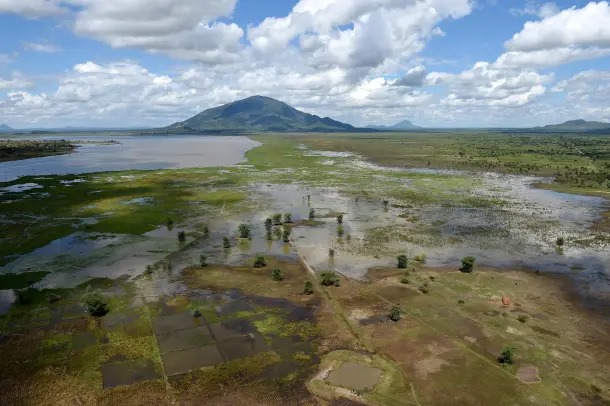Climate Change is affecting agricultural lands, forests and water bodies – EPA
The week-long event, which span 14th to 18th October each year was attended by over 100 community members, including chiefs and opinion leaders.
- Advertisement -
In commemoration of the 2024 Global Climate Change Week, PolicyLink, in collaboration with the Environmental Protection Agency (EPA), hosted a community durbar at Sankana in the Nadowli–Kaleo District of the Upper West Region, to raise awareness about climate change impacts and promote sustainable practices.
The week-long event, which span 14th to 18th October each year was attended by over 100 community members, including chiefs and opinion leaders.
- Advertisement -
On Thursday, October 17, 2024 participants were educated on climate change mitigation and adaptation strategies. The impact of climate change is increasingly visible in Africa, with the continent suffering from the warming temperatures, which have disrupted rainfall patterns, dried up water resources and impacted agriculture.
- Advertisement -
Addressing participants, Mr Adongo Kalvin, Assistant Programmes officer at the Environmental Protection Agency (EPA), expressed worry over what he described as rampant bushfires, mostly caused by the inhabitants.
He reminded participants that tree felling for fuel wood, unsustainable farming practices, and indiscriminate tree felling for charcoal production, contributes to climate change.
“These problems have over the years impacted negatively on the productivity of our agricultural land, forest and water resources. The result of these increase poverty and vulnerability to natural disasters such as flood and drought,” Mr Kalvin stated.
He called on community members and stakeholders to embrace any project and initiative aimed at dealing with the issues of climate change and environment by fully supporting the various departments and agencies.
Issah Toyibu, Regional Programme Officer at PolicyLink stated strongly that Ghana has done little to curbing climate change activities, hence the reason for the current state of the country.
- Advertisement -
He added that, climate change is a threat to the livelihoods of many Ghanaians and the growth of critical economic sectors including agriculture, water, health, energy, forestry, among others.
He mentioned that the National Climate Change Policy considers climate change education, training, and public awareness as systematic pillars, which must be built on to ensure the achievement of its objectives.
Giving an account of the impact of the recent dry spell that hit farmers in Northern Ghana, the Nadowli–Kaleo District Director of Agriculture, Mr Nicholas Tiereke, said not less than 4000 farmers are affected in the area, despite his department still collating data to ascertain the specific numbers.
He stated that staples such as maize, groundnuts, cowpea, soya beans, and Bambara beans are the hardest hit staples in the District.
He called for financial and food support for the affected farmers, aiming to shed light on how climate change is impacting Ghana.
The Climate Change and Green Economy Week has been organized since 2016 as part of the country’s Climate and Green Economy Learning Strategy.
It has been raising awareness about the role public education can have in increasing understanding of the challenges posed by the climate crisis and creating broad, community-driven action to try to stem its effects in the long-term.
Source:onuaonline.com
- Advertisement -


